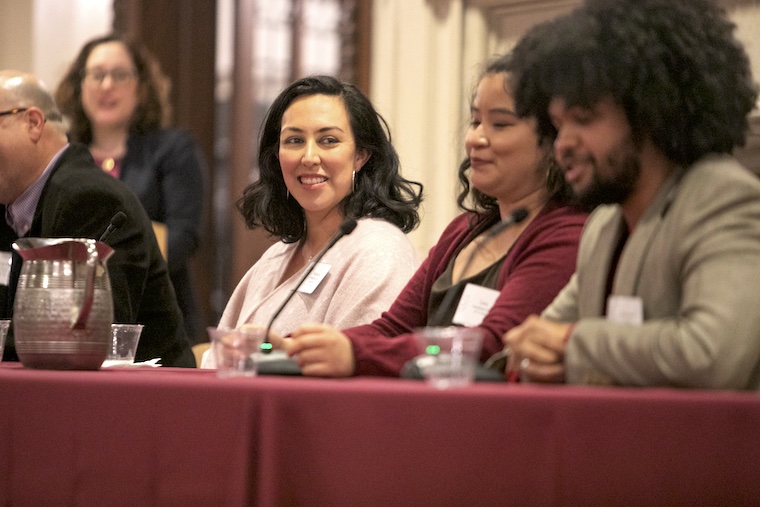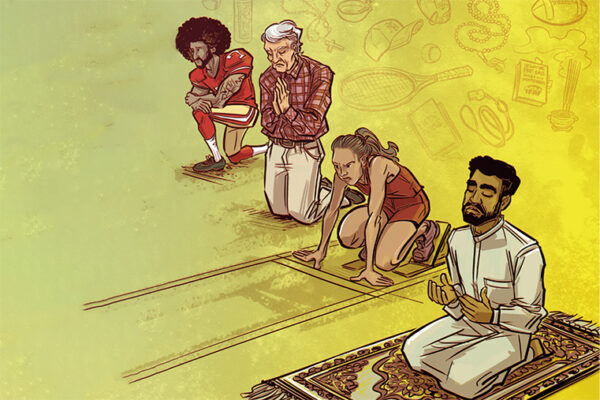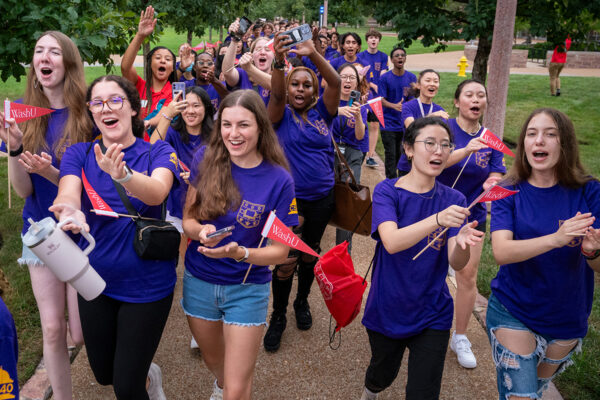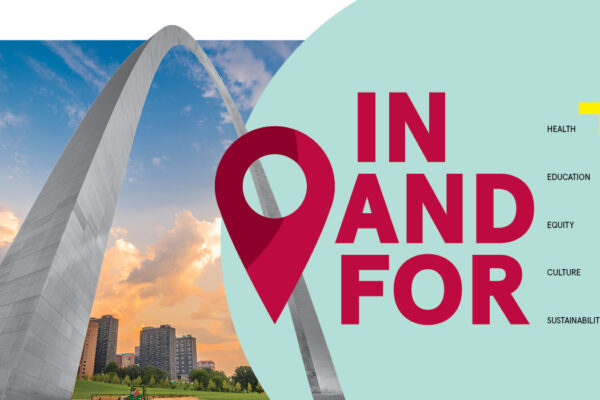In 2002, Jorge Castillo, AB ’06, arrived on campus as one of roughly 3% of Washington University undergraduates who identified as Latinx.* He was drawn to WashU by the Annika Rodriguez Scholars Program, a merit-based and service-driven scholar community established in 1999. At the time, the program’s participants were predominantly Latinx, and “there was a real sense of belonging and family among the students,” he recalls.
That spirit extended to cultural organizations across campus. Many Rodriguez Scholars participated in the Association of Latin American Students (ALAS) and volunteered with Niños Cambios Puertas, a tutoring and mentoring initiative, or at Casa de Salud, a local clinic serving uninsured and underinsured immigrant populations. The bonds forged from these overlapping groups — not to mention the popularity of events like Carnaval — often made the Latinx student presence on campus feel mightier to Castillo than numbers alone suggested.
Today, a little more than 12% of WashU’s undergraduates and 13% of the Class of 2027 identify as Latinx. With this growth comes an equally flourishing body of Latinx alumni. To better reach them, WashU’s Alumni Association introduced a new network in January 2023. La Comunidad, Spanish for “the community,” launched after months of planning by a dedicated alumni steering committee, which included Castillo and five others. The network aims to be a cultural home, as well as a professional and personal resource, for members of the WashU community who identify as Hispanic, Latinx or Latin American.
Origins
The story of La Comunidad begins almost two decades ago, when a handful of recent WashU grads — Castillo and his now-wife, Mónica O’Malley de Castillo, AB ’06, among them — banded together to form a Latinx alumni group. Dubbed Somos, or “we are,” the group sought to become an outreach network for WashU’s “Latino and Latino-loving” community.
In 2007, Jose Chacon, BSBA ’06, built a Facebook page to spread the word while others reached out to Julia Macias, PhD ’20, now associate dean for the Office of Scholar Programs and director of the Rodriguez Scholars Program, to explore a formal partnership with the university. Though the group disbanded after a couple of years, these efforts laid important groundwork for La Comunidad. Three Somos vets sit on the network’s steering committee.
By the time the committee commenced planning in spring 2022, “we are” had morphed into “who are we?” The alumni wrestled with capturing the cultural, geographic and linguistic diversity of this community in a single name. Indeed, the terms Hispanic, Latino/a, Latinx and Latine are complex and not necessarily interchangeable. “Hispanic” denotes a common Spanish tongue, whereas “Latino” and its permutations signify shared geography within Latin America. “Latinx” and “Latine” offer more inclusive, gender-neutral alternatives.
The committee members took these nuances seriously, crowdsourcing fellow alumni and current students for their thoughts and suggestions. “We wanted to come up with a meaningful name that would be inviting to our most recent alumni and those who graduated decades ago,” Macias says. They settled on La Comunidad because it reflects the new network’s foundational goal of building community across generations, geography and experience. While alumni make up La Comunidad’s core audience, the group is open to Latinx students, parents, faculty and staff as well.

On a mission
One of La Comunidad’s immediate goals is to fuel interest through a mix of in-person and virtual events like happy hours and a speaker series. The network kicked off 2023 with an on-campus alumni panel discussion featuring opening remarks by Vice Chancellor for Student Affairs Anna Gonzalez. In April, La Comunidad hosted its first alumni reception during Reunion at Thurtene Carnival, followed by a casual gathering in Chicago later that month.
Additional programming ideas under consideration focus on mentorship and career development, such as a speed networking event that would give current Latinx students and recent grads face time with more established alumni. Macias would also like to see La Comunidad partner with ALAS as well as school-based graduate organizations like the Latin American Law Students Association and the Olin Latin American Business Association. Moving forward, the group may also add student liaisons to the steering committee.
For Carol Pazos, AB ’20, La Comunidad presents exciting opportunities to support today’s Latinx students and have a positive impact on their WashU experience. She came to WashU as a first-generation college student from a largely Latinx neighborhood on Chicago’s South Side and remembers feeling overwhelmed by the unfamiliarity of her new surroundings.
“I thought a lot about how to create space for other students like me when I was at WashU,” she says. Pazos, who was a Rodriguez Scholar, helped found a WashU chapter of Alpha Psi Lambda, a coed Latinx fraternity, in 2018. She views her current role on the La Comunidad steering committee as an extension of this work.
Pazos and other members of the steering committee recognize the importance of university support to the group’s successful launch and future growth. “La Comunidad wouldn’t be where it is today without the backing of the Alumni Association,” she says. In turn, Castillo believes cultural networks like La Comunidad are powerful assets — not just for individual members but also for institutions.
Knowing such a group exists makes WashU a place where current students want to stay and prospective students want to be. And those students will eventually become alumni whose engagement has the potential to further bolster the university and its mission.
Everyone involved has high hopes for the future of La Comunidad. “We’re off to a great start,” Macias says. “But now it’s time to dream bigger.”
For more information about La Comunidad, including upcoming events, visit alumni.wustl.edu/la-comunidad.



